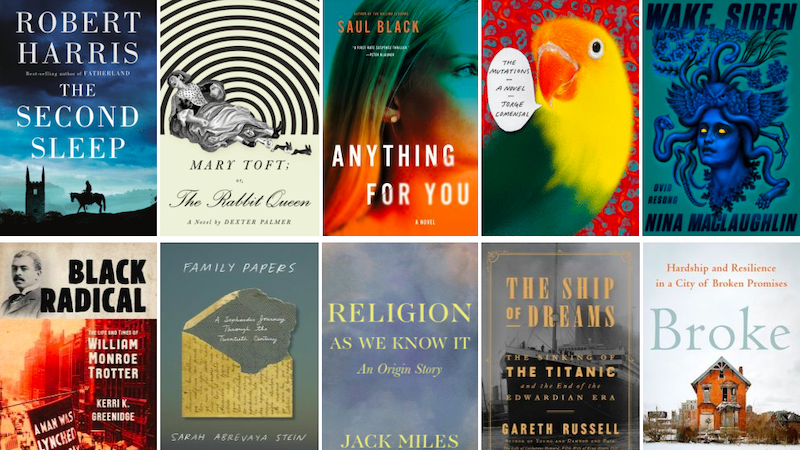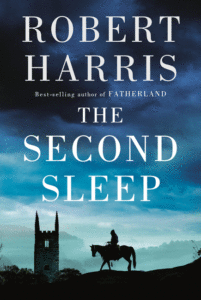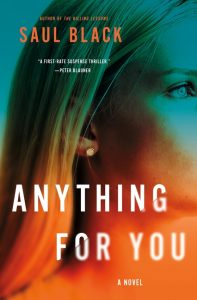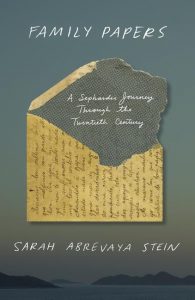
Robert Harris’ The Second Sleep, Dexter Palmer’s Mary Toft, and Kerri K. Greenidge’s Black Radical are among the most critically-acclaimed books of the past seven days.

1. The Second Sleep by Robert Harris
7 Rave • 3 Positive • 1 Mixed
“During the course of his career Harris has perfected the art of creating tension within a story to which we already know the ending … In The Second Sleep he turns the tables: this time we do not know the beginning … The stage seems set for a classic Harris thriller, the lowly functionary intent on challenging the entrenched interests of a secretive and ruthless state. Instead The Second Sleep develops into something more contemplative: an exploration of a world that is both unfamiliar and as old as time, and of the consequences of our flagrant disregard for the existential perils of our own era. A convincingly imagined future world requires a steady accretion of small, telling details and there are sections in Harris’s novel that feel frustratingly inconsistent or approximate. But if his dystopia lacks the political and social coherence of, say, Gilead in The Handmaid’s Tale, he has contrived in The Second Sleep to do something rather brilliant and new. He has put us at the heart of the mystery. Whatever disaster has struck the world it has struck because of us, our greed and ambition, our arrogance. We are all responsible. As Fairfax edges closer to the truth, the reader is left with at least as many questions as answers, and most of those questions are directed at ourselves.”
–Clare Clark (The Guardian)
Read an excerpt from The Second Sleep here
2. Mary Toft; or, The Rabbit Queen by Dexter Palmer
5 Rave • 4 Positive
“Though Mary Toft; Or, The Rabbit Queen offers much that speaks to our own slippery times, it’s neither philosophy posing as a story nor a patronizing sneer at those gullible folk of yesteryear. Rather, taking literary license with the title character’s documented history, Palmer spins a cracking tale that, despite its disconcerting subject, is piquantly cheerful and compassionate … Palmer never resorts to pantomime—except, perhaps, for Nathanael St. André, the first surgeon to hotfoot it to Godalming. With his artful conversation, voluminous wig, silken high heels and mini-me apprentice, he’s straight out of a Hogarth cartoon. Otherwise, with empathy and imagination, Palmer explores the master/apprentice relationship, first love and first rivalry, spite and kindness: conjuring a world to raise a wry smile, some brow furrowing and the occasional loud—very loud—gasp … But what of Mary Toft herself? She is Palmer’s bravest interpretation…to me Palmer is paying Mary the compliment of complexity, raising her above her usual role as a vehicle for ridiculing the 18th-century medical profession. She is a woman whose story, both happily and unhappily, is rather more than the sum of its rabbit parts.”
–Katherine Grant (The New York Times Book Review)
Read an excerpt from Mary Toft; or, The Rabbit Queen here

3. Anything for You by Saul Black
1 Rave • 6 Positive
“As gritty and dark as always, Saul Black again drags Detective Valerie Hart through the worst of humanity in order to give the reader another incredible, heart-pounding, tension-filled thriller … Black gets the twists and the action started quickly and never lets up … Not for every suspense-lover or thriller-reader, Anything For You goes dark—even in comparison to Black’s other work. There is no one unscathed when the dust settles … This tightly-wound, brilliantly paced thriller will keep the reader engaged, excited, and glued to the page. This isn’t the kind of book you spread over a few weeks—you read until your eyes can’t focus, sleep, and then read some more!“
–Marla Warren (The Nerd Daily)
4. The Mutations by Jorge Comensal
1 Rave • 4 Positive • 2 Mixed
“In his first work, young Mexican writer Comensal creates markedly credible characters and instills a vein of humor with a cussing parrot and Ramón’s clueless and self-absorbed adolescent children. But this book remains a chilling reminder of the suffering, both physiological and psychological, that cancer patients and their families endure. For those who have cared for a cancer patient or have been victims themselves, it hits very close to home, reminding many that its gravity trumps humor.”
–Lawrence Olszewski (Library Journal)
Read an excerpt from The Mutations here
5. Wake, Siren by Nina MacLaughlin
2 Rave • 2 Positive • 1 Mixed
“… eclectic … MacLaughlin daringly fashions a new artistic work that transforms female characters from Ovid’s Metamorphoses into the heroes (or anti-heroes) of their own stories. While they take a feminist slant, the 34 accounts in this multivoiced mosaic, which range from a couple of pages to much longer, creatively diverge in approach and style. Some stories dazzle with their poetic eloquence, while others, written in slangy contemporary English, offer short, punchy lines and timeless themes … The free mingling of ancient characters with elements of workaday modern life won’t please everyone, but open-minded readers should applaud the virtuosity and find much worth discovering in these memorable reinterpretations.”
–Sarah Johnson (Booklist)
Read Nina MacLlaughlin on five books that deal with nature in a sensual way here
**
1. Black Radical: The Life and Times of William Monroe Trotter by Kerri K. Greenidge
2 Rave • 4 Positive
“The Guardian editor, Du Bois wrote, was ‘a clean-hearted, utterly unselfish man whom I admired despite his dogged and unreasoning prejudices.’ That man comes through in Black Radical, Kerri K. Greenidge’s spirited biography, an ardent and mostly approving account of Trotter’s life that nevertheless conveys the more vexing elements of his personality … Black Radical opens up a rich seam of inquiry that persists to this day, about the tug-of-war between reformers and radicals, and whether victories that seem purely symbolic at first can ripple out into real-world effects later on.”
–Jennifer Szalai (The New York Times)

2. Family Papers: A Sephardic Journey Through the Twentieth Century by Sarah Abrevaya Stein
3 Rave • 2 Positive
“The account of this one Mediterranean clan, like the best micro-histories, contains much more than a family story, illuminating the forces that shaped the world we live in now … Stein, a U.C.L.A. historian, has ferocious research talents—she collected papers in multiple languages from nine different countries on three continents—and a writing voice that is admirably light and human. She became so involved in the Levy universe that they now copy her on some family emails. All of this has produced a superb and touching book about the frailty of ties that hold together places and people … The family papers that Stein has mined here, with great effort and a keen eye, illustrate history by zooming in as tightly as possible and showing, as she writes, ‘how this family loved and quarreled, struggled and succeeded, clung to one another and watched the ties that once bound them slip from their grasp.'”
–Matti Friedman (The New York Times Book Review)
3. Religion as We Know It: An Origin Story by Jack Miles
2 Rave • 3 Positive
“The beginnings of how religion came to distinguish itself from other aspects of human life is succinctly described and explained … A challenging discourse into the foundations of religion as a separate idea and topic of study. Scholars and students of theology will benefit most from the thought-provoking concepts presented throughout.”
–Gary Medina (Library Journal)
4. The Ship of Dreams: The Sinking of the Titanic and the End of the Edwardian Era by Gareth Russell
2 Rave • 2 Positive • 2 Mixed
“Gareth Russell tells us the popular appeal of the Titanic outstrips that of every ship since Noah’s ark. In his hands you can understand why … like spending time with an amusing conversationalist aboard what the Edwardians called ‘a ship of dreams’ … Russell shows us around and, like one of the more awkward guests, I have questions. Some beds have ‘rose pink duvets’. Surely Russell means eiderdowns? The Titanic’s Turkish baths contain a swimming pool and electric baths, an early form of the tanning bed. Intriguing. In what way were they like a tanning bed? … Happily, the six first-class passengers and their families on whom Russell focuses prove to be a colourful selection of companions … [Russell] is good at bringing his favoured passengers to life … Russell’s social observations are sharp and witty…the wider history he presents is packed with interesting details.”
–Leanda de Lisle (The Times)
5. Broke: Hardship and Resilience in a City of Broken Promises by Jodie Adams Kirshner
1 Rave • 4 Positive
“Kirshner is masterful at explaining the predatory banking and insurance industry practices that have led to impoverishment across the entire city (except for the white establishment downtown), the heartlessness of white politicians (mostly Republicans) who seemingly operate from racist viewpoints, a judicial system that offers little justice for the poor, and bankruptcy law, which was never meant to be applied to city governments. Although immersed in the lives of her protagonists, the author wisely keeps a low profile within her eye-opening and sometimes heartbreaking narrative, which ends with a brief call to action … A significant work of social sciences and urban studies.”
Read an excerpt from Broke here

